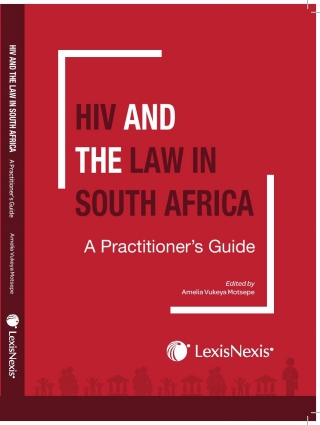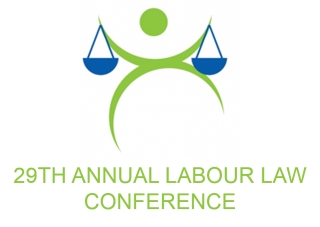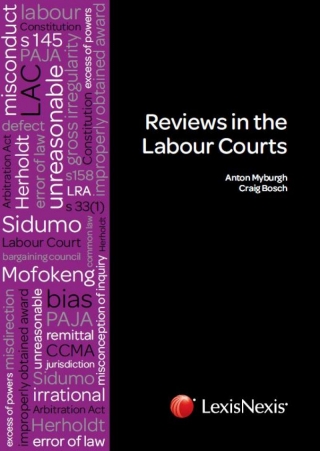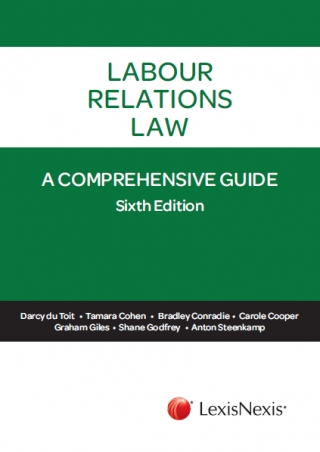Tunnel Vision? The effect of retrospective back pay awards
Labour law is not punitive in nature as compared to civil or criminal law. As a result, when Commissioners consider the facts argued at arbitration, their awards need to be fair and reasonable. Careful deliberation needs to be made not to overstep their powers.
In general, a claim for damages can be instituted for reputational, medical, actual and patrimonial harm, to name a few. However, in labour law, the primary relief claimed by an aggrieved party is reinstatement. Reinstatement can be with or without back pay for the months the former employee was unemployed, particularly if the dismissal is found to be both substantively and procedurally unfair. What needs to be taken into consideration is the reasonability of the award, which we will examine as per the case law below.
In a recent judgment of Maroveke v Talane N.O and others (2021) JOL 50670 (CC), the Court had to determine the appropriateness of the back pay awarded to an employee whose dismissal had been declared unfair. Maroveke (the "applicant") was employed as an artisan and mine technician by Fermel (Pty) Limited, a company that provides technical services to mining companies. The Applicant commenced his employment on the 15th of October 2007. On the 25th of June 2009, the Applicant received a distress signal to attend to a breakdown in a mine. He was with a colleague when he drove a company vehicle through an underground tunnel. The company vehicle sank as the vehicle could not withstand the depth of water, and the Applicant was unable to drive it out. As a result, the engine failed. Later that day, the vehicle was towed to the workshop. One of the officials, namely Engelbrecht, had concluded that the Applicant was responsible for the damage to the vehicle and further told him that the cost of the repairs would be approximately R100 000. Engelbrecht produced a loan form for the amount and instructed the Applicant to sign it. The Applicant refused and demanded that the engine be inspected. He also sought a report setting out the extent and calculations of the damage. The Applicant was informed that due to his refusal to sign the document, he would be charged for misconduct and subjected to a disciplinary hearing. On the 6th of July 2009, a disciplinary hearing was held and he was found guilty on the basis that the applicant "could have foreseen that there could be potential damage to the vehicle after he drove it into the water". An expert report regarding the damage to the vehicle was not presented during the hearing, nor was a copy given to the Applicant. The Applicant was also not afforded an opportunity to deal with the report during his evidence. The chairperson of the hearing, however, considered the report during the determination of an appropriate sanction. On the 16th of July 2009, the Applicant was dismissed. The Applicant secured employment two months after his dismissal.
The matter was referred to the CCMA as an unfair dismissal dispute whereby the Commission viewed the Applicant's dismissal as both procedurally and substantively unfair on the basis that the damage report was not provided to the Applicant. As a result, the Commissioner awarded reinstatement. The company took the award on review to the Labour Court. The Labour Court held that the Commissioner's decision was fatally flawed and set aside the award and replaced it by stating that the Applicant's dismissal was procedurally and substantively fair.
The Applicant referred the matter on appeal to the Labour Appeal Court, which then found that not all evidence that was before the CCMA was before the Labour Court and decided to set the Labour Court's decision aside and remitted the matter back to the CCMA to be heard afresh by a new Commissioner.
On the 14th of October 2014, the matter came before a new Commissioner at the CCMA who held that the Applicant had, under the circumstances, acted as a reasonable driver and maintained his conduct in terms of the company policy. Therefore, negligence for the charge of misconduct had not been established. The Commissioner concluded that the employer had failed to prove the misconduct and accordingly held that the dismissal was substantively unfair. The Commissioner issued an award of reinstatement retrospectively from the 1st of November 2013 with back pay equivalent to 12 months' remuneration.
The Applicant applied for a variation of the award. This was on the basis that the back pay as per the award was calculated on the same scale from the date of employment to the date of the arbitration award. This was acceded to by the Commissioner. Thus, the back pay due to the Applicant increased from R135 536.28 to R469 256.88. The company took the award on review to the Labour Court, which agreed with the Commissioner's view that the dismissal was substantively unfair and that the order for reinstatement was appropriate.
Important to note, however, is that the Labour Court did not concur with the order for 12 months retrospective back pay. The Court further stated that in keeping with the established principle that reinstatement ought to neither impoverish nor enrich the employee but restore them to the position they would have been in, but for the dismissal. In this case, the employee was only unemployed for two months until he gained employment, and therefore, the retrospectivity was indeed unreasonable in the circumstances. The Labour Court set aside the CCMA award and replaced it with an order reinstating the Applicant with effect from the 14th of October 2014, being the date of the arbitration award, with back pay equivalent to two months' wages. The Applicant took the Labour Court's decision on appeal. The Labour Appeal Court, however, dismissed his application for leave to appeal.
The matter was taken by the Applicant on appeal to the Constitutional Court ("CC"), claiming an element of infringement of the right to fair labour practices. The CC considered the order by the LC and had a distinct issue with the portion of the order for retrospective back pay. The CC held that in restoring the Applicant to his previous position, this Court ought to have considered both the amount he would have earned but for his dismissal and what he earned while working at Gold Fields. As far as this is concerned, the Labour Court did not set out the facts it considered in terms of the Applicant's earnings. It was only alluded to from written submissions that the CC requested from parties that the Applicant earned considerably lower wages at the new employer than what he earned at the time of his dismissal.
The CC considered whilst employed by the previous employer, the Applicant earned R24 730.60 per month. At Gold Fields (new employer), he earned R15 000.00 per month. The difference between the salaries is R9 730.60 per month. This would mean that the total difference in earnings for the period of 10 months is R97 306. In the Court's view, the Applicant's diligence and good fortune in finding employment should not prejudice him from receiving what is due to him.
The Applicant was entitled to payment of R49 461.20, which was two months' back pay, and R97 306, being the total difference between what he earned whilst in the third respondent's employ and his earnings at Gold Fields for the period of 10 months. This means that the Labour Court had to set the order aside and replaced it with an order that the third respondent should pay the Applicant an amount of R146 767.20.
In conclusion, the Constitutional Court held that the Labour Court should have taken the salary difference into account when determining the back pay. Retrospective back pay should not be viewed through a ‘tunnel’ but rather seen from all angles in order to have reasonable and fair outcomes.
Article by:
Natasha Govender
Natasha is a Dispute Resolution Official and Collective Bargaining Co-ordinator for the Consolidated Employers Organisation (CEO SA)
The Employer’s Guide: Marijuana legalised… or is it?
With the Constitutional Court officially passing a judgment on 18 September in terms of legalizing the household use of dagga, the whole country seems to be in an uproar. What does this entail for employers in terms of still ensuring a productive and safe working environment for all?
We can expect that employers will now face a situation where some employees aim to take advantage of this situation and if reprimanded for unacceptable behaviour, employees might plead ignorance. For labour- and industrial relations, this new situation created by the judgment of the Constitutional Court does not affect the rules, policies or disciplinary consequences employees would face should they be found using dagga at the workplace, or arriving at the workplace under the influence of dagga.
Upon reading the judgment carefully you’ll find that the government now has 2 years to regulate this decision and officially write it into legislation. This means that any and all further regulations in terms of the quantities of private use, is yet to be determined. It is, however, vital that employers note that this judgment gave the green light to private use only, and that such use thereof is now decriminalised. Emphasis is placed on private use, as this means that employees may use dagga only at their homes. Should any employee report for duty and be tested positive for this narcotic (by use of observation reports; urine tests, etc.) or should they be found to use this while on duty, the employer still has the same measures of protection and remedies to his disposal as he would have had before the Constitutional Court’s judgment.
Employees must be informed that should they use dagga at home, they still have a duty to make sure that it would not be found in their systems when they report for duty and get tested. Should it appear that an employee arrives at work with this narcotic still in their system to such an extent that it can reasonably be expected to impact his ability to perform his duties productively, or that it could pose a safety risk to himself/other employees/the employer’s property, the employee can expect to be suspended pending a formal disciplinary hearing and a possible dismissal.
In order to avoid future situations where employees take advantage of this situation, employers are urged to have meetings with all staff members and inform them that even though private use is allowed, the rules and regulations of the company would still be followed. Furthermore, employers could implement a Zero Tolerance policy that would strengthen these rules and regulations.
SASLAW celebrates its 20th Anniversary
This year, The South African Society for Labour Law (SASLAW) celebrates its 20th anniversary. We look back at the society’s illustrious history and the significant impact it has had in the labour law community in South Africa.
The South African Society for Labour Law (SASLAW) was established in June 1997 with the humble purpose – as SASLAW National President Shamima Gaibie says – of bringing people interested in labour law together.
Since then, the stature of the organisation has grown as has its aim of developing labour law both as a profession and an academic discipline. To accomplish this, SASLAW has four areas of activity: membership benefits, seminars and workshops, an annual conference and the Pro bono project.
Continuous learning
At the forefront of SASLAW’s strategy is developing and promoting the labour law profession. The society accomplishes this through regular seminars that are addressed by labour law experts and cover pertinent topics such “Monitoring employees' electronic communications - The diminished right to privacy” as well as “Privacy and Social Media”.
The highlight of SASLAW’s annual calendar is the annual conference which takes place in the fourth quarter of every year. This year, to mark the society’s 20th anniversary, the SASLAW 20th Annual Conference will take place at Sun City in tandem with the first African Labour Law Society Conference. The African Labour Law Society (ALLS) was established in 2016 to promote the labour law discipline as well as share labour law knowledge in Africa.
The conferences will run from 7 – 9 September 2017, with the ALLS conference being held on the 7th. seminar beginning proceedings on the seventh and the SASLAW conference taking place on the remaining two days. SASLAW is honoured to advise that Prof Sandra Fredman, FBA QC, Director at the Oxford Human Rights Hub, United Kingdom, Judge Raymond Zondo of the Constitutional Court of South Africa and Professor Dr Manfred Weiss, Goethe University, Frankfurt, Germany will be the three keynote speakers.
Fostering a new generation of labour law practitionersIn 2013, a decision was taken at National Level in SASLAW to develop the SASLAW Young Scholars society to generate innovative thinking on labour law issues among the younger generation of labour law practitioners. The YSS has been actively involved in spreading the SASLAW message both locally, with a number of events at a variety of tertiary institutions that offer legal studies, as well as internationally.
Pro Bono project
The SASLAW Pro Bono NPC project at the South African Labour Courts serves to deliver a quality advisory service and defined Labour Law legal services to those who otherwise do not have access to justice. The project provides legal services to those who are unable to afford legal counsel has met a very definite need within the community. To date, the programme has serviced over 17 000 clients and the number keeps growing.
Year on year, SASLAW becomes stronger thanks to the number of members who are involved in all aspects of Labour Law who join the society. SASLAW is only as strong as their loyal members and dedicated committees and a vote of thanks goes to them for their support throughout the years. The society looks forward to seeing what the next 20 years will hold and how these will enable them to influence the South African labour law community further.
27 11 431 1237
Legal Guide Released to Tackle HIV/AIDS Stigma and Discrimination
South Africa has over the years developed a progressive legal and policy framework to protect human rights for all people living with HIV and AIDS. However continued stigma and discrimination often remain barriers to accessing treatment and efforts to fight the epidemic must be accompanied by a solid commitment to respecting the human rights enshrined in our Constitution.
A new handbook, published by LexisNexis South Africa, aims to facilitate easy access to the law relating to HIV and AIDS in South Africa. This, it is hoped, will aid in fighting injustice against people living with and affected by HIV and AIDS. HIV and the Law in South Africa: A Practitioner’s Guide includes extensive contributions from a number of the foremost practitioners and theorists in the field. It is edited by leading law, public health and human rights champion, Amelia Vukeya Motsepe.
While aimed at legal practitioners working in this crucial area of public law, the book’s simple, user-friendly approach is also set to appeal to NGOs, charities, healthcare professionals and students of law and medicine.
Writing the foreword for HIV and the Law in South Africa: A Practitioner’s Guide, Constitutional Court of South Africa Justice Edwin Cameron said lawyers had played a significant role in protecting and promoting human rights and justice for people living with HIV and those affected. “Clients with HIV turn to lawyers when their privacy has been violated, their bodies bruised, their rights trampled on, their medical needs denied. Serving these clients effectively demands knowledge of areas of law that probably remain unfamiliar to many lawyers, particularly those in private practice,” he said.
Moreover, the South African legal fraternity’s growing culture of pro bono work now sees attorneys supplementing standard commercial work with human rights volunteerism in which they fight against injustice and inequality on behalf of the vulnerable within society. This means that in order to promote transformation in this space, the legal profession, including the judiciary, must be suitably trained and empowered around human rights related issues pertaining to HIV/AIDS.
HIV and the Law in South Africa: A Practitioner’s Guide aims to help role-players navigate this complex terrain, through a comprehensive taxonomy covering: Constitutional, Legislative and Policy Framework on HIV in South Africa; HIV Testing, Confidentiality and Informed Consent; Access to Health Care Services for People Living with HIV; The Management of HIV in the Workplace; Insurance Law and HIV; Social Grants (Support) for People Living with HIV; Women and HIV: Protecting the Health and Rights of Women and Girls; Children and HIV: Safeguarding the Rights and Interests of Children; The Rights of Inmates Living with HIV: Access to Treatment and Prevention; Access to health Care For Foreign Nationals; Wrongful Transmission of HIV: Criminal and Civil law Perspective; and The Science and Medicine of HIV. The book is supported by LexisNexis South Africa in line with the company’s global purpose of helping clients to uphold the Rule of Law.
Publication of the guide was also made possible through support from the M.A.C AIDS Fund Leadership Initiative at Columbia University, in collaboration with the University of California and Los Angeles, the Human Sciences Research Council of South Africa, HIVOS People Unlimited Collaborative Funds for Leadership and HIV Prevention Programme, as well as other partners in South Africa.
Editor Motsepe and LexisNexis South Africa will donate a portion of royalties from sales of the book to Positive Women’s Network South Africa, which is active in the fight against HIV/AIDS in South Africa.
HIV and The Law In South Africa: A Practitioner’s Guide [ISBN 9780409127829] can be purchased in print or as an e-book at a cost of R 500.00 inclusive of VAT and excluding delivery. It is available through the LexisNexis online bookstore at https://store.lexisnexis.co.za/categories/law/labour-law-131/hiv-and-the-law-in-south-africa-a-practitioners-guide-skuZASKUPG2173
Annual Labour Law Conference to Address a Labour Market in Crisis
#UnemploymentMustFall: Meeting the Challenges of a Labour Market in Crisis is the subject of the 29th Annual Labour Law Conference (ALLC), taking place at Emperors Palace – the conference’s new home – from 24 to 25 August 2016.
With South Africa’s latest available unemployment statistic sitting at around 25 percent, coupled with political turmoil and the economy under threat of a downgrade to junk status, the topic couldn’t be more apt.
Jointly organised by the Universities of Cape Town, Witwatersrand and KwaZulu-Natal, and facilitated by The Conference Company, the ALLC is the largest of its kind in Southern Africa attracting some 600 to 800 professionals from around the country annually.
Nicci Whitear-Nel, Senior Lecturer at the University of KwaZulu-Natal’s School of Law, said: “This year’s conference includes a heavyweight line up of government leaders, among them Advocate Thuli Madonsela, who will speak on ‘Navigating job creation and corruption’. Other burning issues to be tackled include youth unemployment, challenges facing trade unions, retirement reforms, emerging trends in retrenchments, the national minimum wage and the implications of the water crisis for the labour market.”
Labour broking will also be under the spotlight and the conference will include insights into the example of the SA Post Office with an address entitled ‘Short-term financial savings, long-term industrial relations shambles: The experience of using labour brokers in the SA Post Office’ by Prof David Dickinson of the Department of Sociology at the University of the Witwatersrand.
Labour law specialists, trade unions, government officials, HR managers, labour practitioners, lawyers and business leaders will bring themselves up to date on the latest cases in collective labour law, procedural law and individual labour law, and the impact of the 2014 amendments to the Labour Relations Act on job creation. Together they will debate and seek solutions to meet the challenges facing South Africa during this difficult time.
The 29th Annual Labour Law Conference will be opened by Judge Basheer Waglay and the keynote address will be delivered by Mr Lesetja Kganyago, Governor of the Reserve Bank.
Speakers representing Government include Mr Thobile Lamati, Director-General, Department of Labour and Mr Buti Manamela, Deputy Minister in the Presidency. Among the academic speakers are UKZN’s Prof Tamara Cohen and Ms Nicci Whitear-Nel; UCT’s Prof Rochelle Le Roux, Dr Ariane De Lannoy and Dr Cheri Young; as well as Wits University’s Prof Vishwas Satgar, Prof Roger Southall and Prof Nicolas Pons-Vignon. Representing organisations will be Dr Valerio de Stefano, International Labour Organization, Prof Monde Makiwane, HSRC, Mr Afzul Soobedaar and Mr Cameron Morajane, CCMA, and Ms Khanyisile Kweyama, Business Unity South Africa.
For bookings or more information on the 29th Annual Labour Law Conference to be held from 24 to 25 August 2016 at Emperors Palace, Kempton Park Gauteng, contact Erin on 031 303 9852 or email This email address is being protected from spambots. You need JavaScript enabled to view it.. Alternatively, visit http://www.annuallabourlawconference.co.za/
Also join the conversation on social media:
Twitter:@AnnualLabourLaw
Facebook: www.facebook.com/AnnualLabourLawConference
Hashtag: #ALLC2016
Invaluable Book Released for Labour Law Practitioners
The Labour Court roll is dominated by review applications. A review application is the result of a party’s unhappiness with the award from the CCMA or bargaining council. The disgruntled party’s recourse is to launch an application in the Labour Court for the review of the award.
A new legal title from LexisNexis South Africa addresses these proceedings. Reviews in the Labour Courts provides excellent guidance for labour practitioners and is a must-have manual for all labour lawyers, advocates, judges, CCMA commissioners, bargaining council arbitrators, unions, HR/IR practitioners, in-house counsel, lecturers and post-graduate students. The authors are two of South Africa’s leading labour law advocates, Anton Myburgh SC and Craig Bosch.
The Constitutional Court, in the leading judgment of Sidumo, set out the test on review: “Is the decision reached by the commissioner one that a reasonable decision-maker could not reach.” Whilst the ‘Sidumo test’ appeared narrow, the Constitutional Court found that CCMA awards constitute administrative action and so the constitutional standard of reasonableness suffuses Section 145 of the Labour Relations Act. The result is a massive body of case law that continues to grow, making it difficult for busy practitioners to keep pace.
In his foreword to Reviews in the Labour Courts, Honourable Justice John Murphy said Reviews in the Labour Courts would serve as a practioner’s manual. “Every now and then a law book is written that fills a notable gap in the bookshelves of practising lawyers. This is such a book,” he said. “The arguments are meticulously researched, logically presented and practically relevant. In that way, in addition to its value as a scholarly work, Reviews in the Labour Courts will serve as a practitioner’s manual. The practice of labour law before the labour courts will profit immensely from practitioners embracing the practical teaching of this seminal work.”
Reviews in the Labour Courts will be launched at the SASLAW Annual Conference in Johannesburg on 22 July 2016 and is available through the LexisNexis online bookstore https://store.lexisnexis.co.za/categories/products/reviews-in-the-labour-courts-skuZASKU9780409044850/details at a cost of R800.00 inclusive of VAT and excluding delivery.
About the Authors
Anton Myburgh, BJuris LLB (UPE): Anton is a senior counsel at the Johannesburg Bar (Sandton); adjunct professor of law at NMMU; past national president of SASLAW; sometime acting judge of the Labour Court.
Craig Bosch, BA LLB (Stell) LLM (UCT): Craig is an advocate at the Cape Bar; research associate at NMMU; former senior lecturer in labour law at UWC, former senior commissioner of the CCMA and bargaining council panellist.
New Edition from LexisNexis Guides Way through Changing Labour Law Landscape
Over the past year South African labour law has undergone its most radical change since 1995. A new publication from LexisNexis South Africa, a leading provider of content and technology solutions, aims to guide students and practitioners through these significant new acts and amendments, including the Employment Equity Act, the Basic Conditions of Employment Amendment Act, the Labour Relations Amendment Act and the new Employment Services Act.
Labour Relations Law - A Comprehensive Guide 6th Edition is the indispensable labour law update launched on 18 February 2015. This major update on the previous edition covers the legislative and case law developments that have altered the landscape of labour law in South Africa in recent months.
“The legislative process took longer than anyone had expected, with the much-debated Labour Relations Amendment Act taking effect on 1 January 2015. The three Amendment Acts and the Employment Services Act have introduced the most extensive changes to our labour law dispensation since its original enactment,” said Darcy Du Toit, Managing Editor of the book.
“There has been a vast amount of new case law and landmark decisions, such as Sidumo, which have changed the course of labour law theory as well as practice. In addition, there has been a vigorous re-emergence of common law in the form of claims based on contract rather than statutory rights which, after some divergent judgments, was eventually harmonised with the legislative framework by the Supreme Court of Appeal,” added Du Toit.
Labour Relations Law: A Comprehensive Guide 6th Edition references several landmark decisions by the Constitutional Court, Supreme Court of Appeal and the Labour Appeal Court which have clarified the law in areas ranging from the review of arbitration awards to the status of affirmative action measures. It also treats issues in more depth, not only in terms of black-letter law, but with regard to the socio-legal context, which is important in the context of purposive interpretation.
The edition also provides a systematic treatment of the role of common law and the interface between the contract of employment and labour legislation, which has taken on importance since 2006.
“The book has an extensive bibliography providing a basis for further research using specialist publications, not only for academics but for practitioners preparing on complex questions,” added Professor Du Toit.
Labour Relations Law: A Comprehensive Guide 6th Edition is available through the LexisNexis online bookstore at a cost of R855.00 (including VAT, excluding delivery), ISBN: 9780409048360. An account is not required to make a purchase in the online bookstore.
Understanding and mitigating the risks of social media in the workplace (Workshop 2014)
Companies are rapidly seeing the benefits of social media. In fact, social media is becoming indispensable for business, but with all the benefits come threats and risks as well for the workplace. Frost & Sullivan’s Global Workforce Study found that 64% of respondent companies limit employee access to social media through content filtering and website blocking technology, 51% restrict access by setting and enforcing policy and 25% have no restrictions on the use of social media by employees.
Businesses should define clear social media usage policies, specifying who can access social media, what sites they can access, when they can access them, where they can access them and what devices they can use to access social media during work hours. There should be no room left for confusion. Policies should be clear, well defined and communicated to employees.
Professionals who would benefit by attending include HR Managers, Digital Marketers, Chief Risk Officers, Social Media Strategists, Office Managers, Marketing Managers, HR Consultants, Employee Benefit Managers, Legal Advisors, Digital Projects Managers, e-Commerce Managers, Risk Managers to name a few...
Rosalind Davey and Khomotso Makapane will facilitate the workshop, teaching all attendees how to understand and and mitigate the risks of social media in the workplace. Both of the facilitators are qualified attorneys from one of South Africa’s top law firms Bowman Gilfillan and specialise in employment law and Rosalind is one of the few attorneys specialising in social media law.
During the half day workshop social media statistics, constitutional rights, RICA, freedom of expression and the law of defamation, liability for defamatory content on social media and vicarious liability, handling social media misconduct, loss of confidential information and contacts as well as mitigating the risks of social media will be addressed. View full agenda and download registration form at www.aoevents.co.za
Workshop registration fee: R800 pp. Groups of 3 or more receive 10% discount.
Email the completed registration form to This email address is being protected from spambots. You need JavaScript enabled to view it. to secure your seat.
WHERE ARE SOUTH AFRICA’S POTENTIAL WOMEN DIRECTORS?
They are in South African companies and industries right now, although they may not be part of traditional networks and are unlikely to be present at the higher levels of management in the same numbers as men. It is for this reason that BPW SA and the Department of Trade & Industry (the dti) have partnered in an unrivalled “Women on Boards” director development programme to create a pool of female leaders in SA who are excellently trained and are therefore highly sought after by Boards.
Most people today have no knowledge about the makeup of corporate boards, even in the companies they work for. These people would be surprised to learn how little diversity of thought and experience exists in the corporate boardrooms and executive suites of South African businesses. Why should you care about board composition? Boards of directors make decisions that can impact you, your community, and the country. That’s why it’s important that membership on corporate boards be representative of a company's constituents.
Boards of directors choose CEOs. They make decisions about executive compensation, whether to buy, sell, or merge with other companies, where corporate offices close and relocate, and how much priority a company gives to issues other than profits, such as social responsibility.
Our Women on Boards programme will give you the expertise and exposure needed to be part of the right networks. It is an eight-part program — strategically placed over the course of 8 months, due to the complexity of the material — equips women with the knowledge and tools needed to elevate themselves to the C-suite and beyond. In a supportive and highly interactive atmosphere, an impressive roster of top government and corporate experts will guide skilled female executives through a rigorous program of intensive classroom instruction, case studies and simulations. Every element of the program is focused on strengthening and broadening the leadership talents of the participants and delivering positive results for their companies and organizations. They will improve their understanding of the responsibilities of board membership and develop the skills and strategic insight needed to become a more effective director. They will improve their understanding of board governance while heightening their financial literacy and increasing their understanding of relevant legislation. Amongst others, specialist training is also provided by the Johannesburg Stock Exchange (JSE) with regard to corporate governance and understanding of JSE terminology and the Commonwealth Business Council (CBC) (London) who will impart their expertise on personal and reputational risk. The dti will convey their expectations of board members and corporate experts will present, and execute simulations, on media and presentation skills to enhance leadership effectiveness. The programme is certified by the dti.
For more information, please visit our website at www.bpw-jhbsa.co.za .or contact This email address is being protected from spambots. You need JavaScript enabled to view it. or 011 794-4991.







